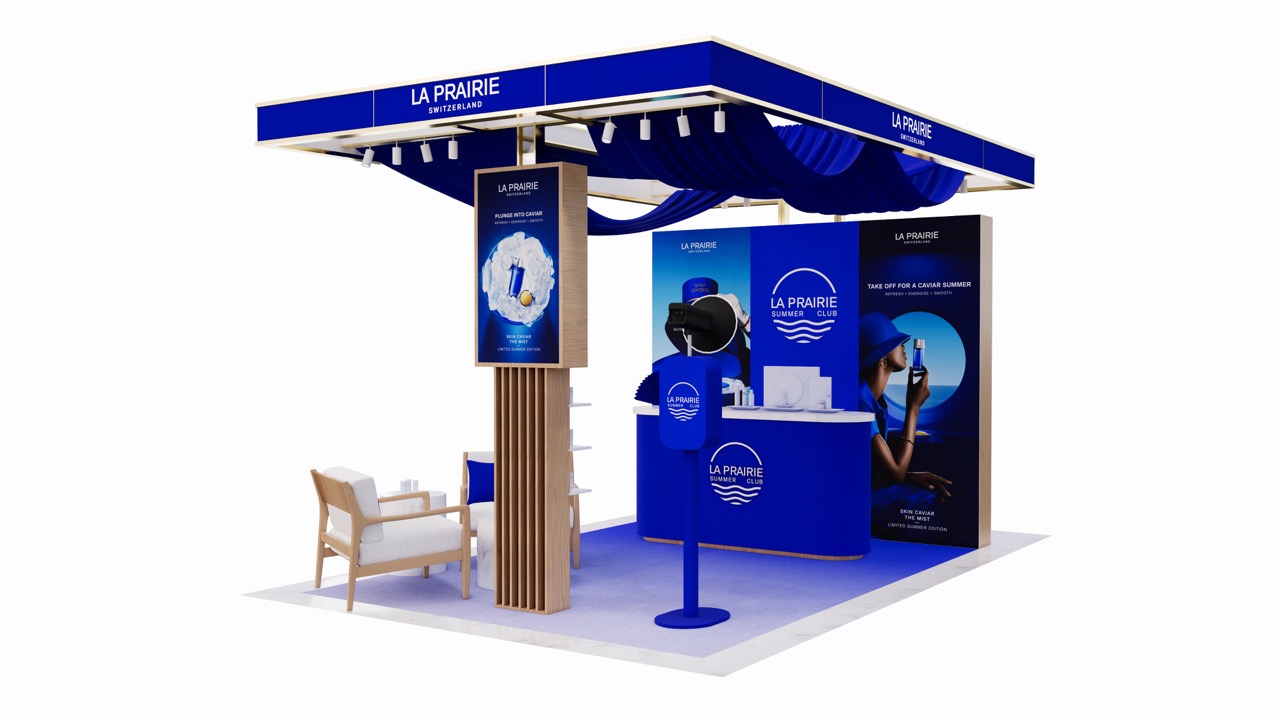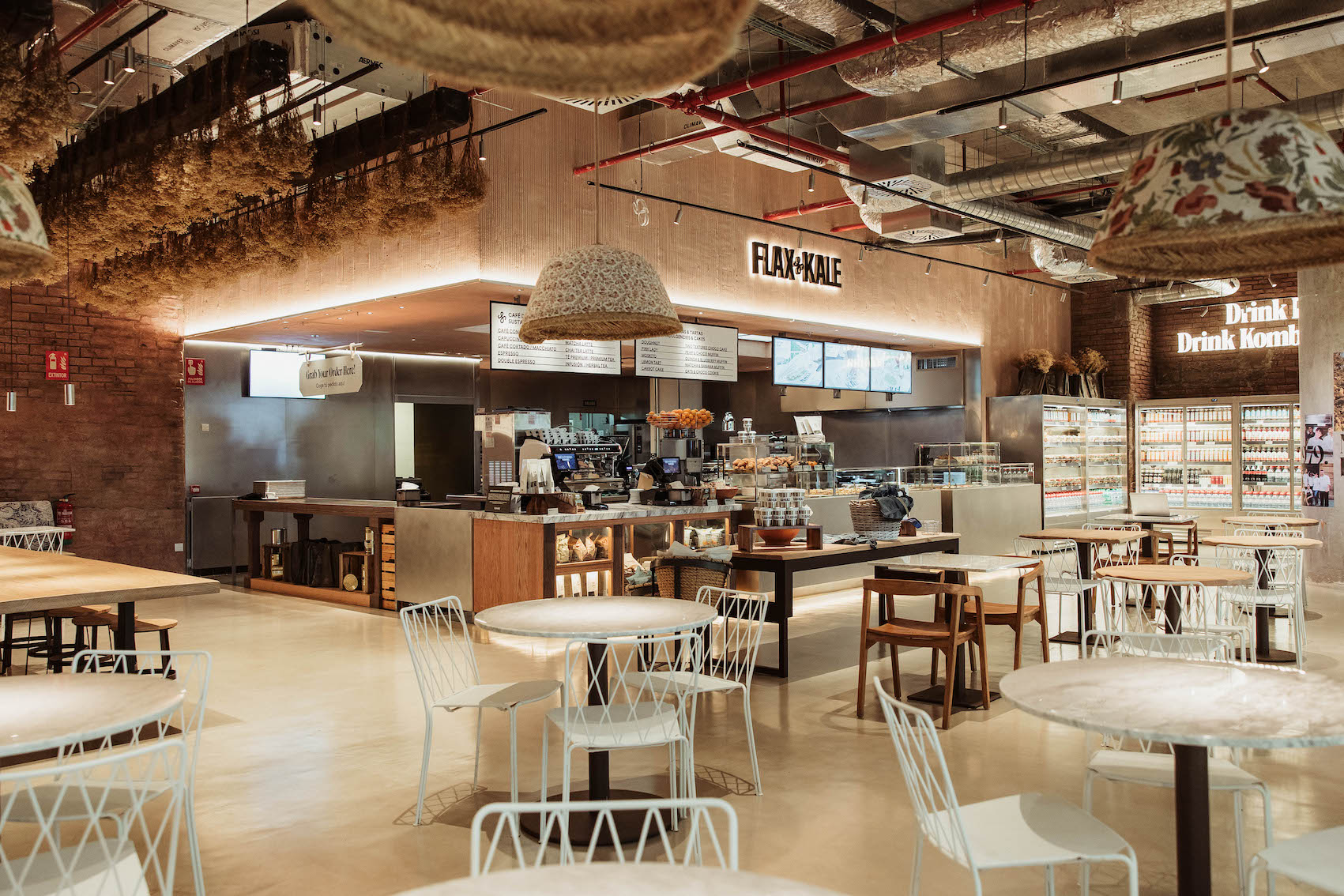INTERNATIONAL. Keith Hunter is Co-Founder of Hunter Palmer – Global Retail Solutions* and former Senior Vice President of Qatar Duty Free for Qatar Airways. In this special guest column, he urges airports to consider the vast opportunity that in-house retail concepts can deliver.
For an airport, there’s no denying that building an in-house retail brand is hard, writes Keith Hunter. It can be risky and needs a great team to deliver it with the required punch to be successful. However, a home-grown concept can be very rewarding financially and I consider it to be integral to any operator’s mix if they want to build a long-term commercial vision for their airport.

With the rising importance of non-aeronautical revenue at airports, winning the battle of the retail mix is a pressing concern. However time and time again airports fail to consider the home-grown option and turn solely to local and international brands to fill their space, even when the brand offer and execution is not relevant to the environment.
Of course, a well-known brand will always find a home at the airport. With the constantly changing profile of the international traveller, a globally recognised name will probably do well – for the brand at least.
However, in terms of revenue potential for the airport, branded concessions are not always the best solution. Like the passengers they serve, brands come and go, but negotiating with those brands to meet changing needs and lack of success can be a constant headache.

Keith Hunter co-founded the Hunter-Palmer Partnership “to help fill the void he felt existed in the travel retail marketplace”
By developing your own concept, or ideally multiple concepts, you open the door to control over your own purchasing and merchandising and can achieve a level of flexibility that is often not an option in a negotiated concession. No longer do you continually have to revisit large multinationals to extricate yourself from contracts as their brand loses popularity. No longer are you forced to renegotiate margins as they push new lines and try to get rid of old ones by using airport outlets as a clearance depot.
Please don’t get me wrong, I am not criticising the value of a global brand. They absolutely have their place in an airport, and they will always dominate the mix, but a good concept store can bring together the best of the best. Innovative concepts can complement the big hitters and can target gaps in the market.
Additionally, not all global brands are available in the travel retail arena. Many are simply not set up to work in the airport environment – they don’t have the supply chain and they don’t have the knowledge.
Introducing them on a smaller scale in a concept store can help suggest them to customers with a relatively low level of risk for the brand and a positive impact on an expectant audience. A partnership with a brand is an option for a home-grown airport start-up, allowing you to share cost, information and knowledge but retaining control of and flexibility in the offer. A prudent partnership or JV will help assuage concerns about lack of a viable supply chain. Done correctly, the ROI in the long run can be double the expected return compared to an average concession deal.
The potential of new concepts to drive greater control of costs and revenue has been shown at several airports in the Middle East, which have maintained control of all elements of the offer and experience, with an emphasis on quality at all times. These hubs have shown what can be achieved when all stakeholders work together: not always distracted by who owns the customer, but rather working on the basis that by enhancing the overall customer experience, everyone wins.


Such monopolies where the Trinity of airline, airport and retailer are controlled by one authority are not possible for all, nor arguably are they desirable in the interests of fair competition. However the idea is the same: by developing your own concept and running it yourself, you maintain control.
Becoming the author of your own success is something that can arguably be achieved even when the different elements are not under the same ownership. Through working together to understand the needs of the passenger across all aspects of their airport journey – from the car park to the boarding gate – the potential of the tailored experience can be realised.
In a world of often bland and repetitive airport offers, the opportunities enabled by home-grown concepts to give the airport an individual identity are considerable. They can be the point of reference used by passengers when referring to that airport: ‘Oh that’s the one with the great toy shop. The only one in Europe apparently.’
Too often big operators are not offering innovation or adapting their offer to suit the passenger. With control over quality and availability, higher revenue can be achieved through targeted purchasing that adapts quickly to changes in passenger profiles. Concessionaires’ contracts restrict the airport’s ability to be flexible enough to respond to changing circumstances or ensure that the retail offer, which is generally perceived by the public to be the responsibility of the airport operator, is continuously offering the appropriate categories, range, price and service. These elements will often be determined and driven by the brands’ standards, not the airport operator’s. In-house concepts provide an ability to keep tweaking the recipe to suit the customer’s palate, rather than just pasting brands into your portfolio because ‘that’s what you have in an airport’.

The arguments against the home-grown option? Start-up costs are one. There is no denying that it is less costly in the short-term to get a third party to fill a space, especially in terms of the design, CAPEX/OPEX, trained personnel and the loss of guaranteed rent.
Also, you don’t have the economies of scale: certainly a one-off won’t be able to achieve instant high margins unless you can be clever in the way you combine deals from existing suppliers.
As mentioned earlier, one way to mitigate this risk, especially for a smaller airport, may be to set up a short- to mid-term partnership with a brand to get a new concept off the ground. It may be a match made in heaven that then endures, but alternatively it could be with a view to the airport becoming a master of its own destiny once teething problems have been ironed out and the concept gains traction. This can be an ideal way to limit the risk but explore the options. The brand can benefit from entry to the airport environment and test product with its own target audiences.
You could argue that it would be hard to take such a custom-fit offer to other markets, even if a home-grown offer becomes established. However a really great new concept will achieve its revenue potential by being tailored to each airport’s unique passenger profile, which will exist to a greater or lesser degree elsewhere. You can then follow that profile and it can be further adapted again. If a concept is not tied to global guidelines in terms of range, space and concept, then it becomes more efficient in terms of stock holding.

It does take some work to set up a new concept of course. There is considerable legwork required to see what’s out there and a great deal of head-scratching involved to determine what could be fresh, new and something that people want. You also need to build a strong merchandising and purchasing team, or work with a partner who already has this in place. But it can be a great chance for a team to develop something new and exciting and get their teeth into a creative project. Employees will create greater energy and support for something if they have been part of its creation. Some of the best fun I have had has been in a room full of enthusiastic executives, all busily thinking up names for new concepts – the trick, I have discovered, is to not give in to cheesy puns or innuendo.
Overall, the long-term view delivers greater lasting gains. Short-term fixes or knee-jerk reactions in a panic to fill a failing space or an empty lot won’t deliver continuous gains and often just postpone the inevitable headache when a concession doesn’t deliver.
Understandably the pressures of an airport environment often drive operators to go for what they think is the more manageable option, concessioning out everything that’s not nailed to the floor. But the result never changes: it doesn’t deliver on true revenue potential or on the chance to be outstanding as an airport, and the figures will continue to be underwhelming.
The modern consumer expects novelty. They need to be surprised, delighted and entertained on a constant basis. If they raise their eyes from their phones, they need to be engaged rapidly or you have lost them. A home-grown concept enables you to deliver continuous improvements, spark and interest. You are in control of that at all times and can respond immediately without prolonged correspondence and negotiation. It opens the door to innovation and allows an airport to be a market leader, rather than a follower.
*Hunter Palmer – Global Retail Solutions works with airlines, airports, investors, operators and hospitality companies to help develop their strategic positioning and improve business performance. The new venture is a partnership between industry veterans Keith Hunter and Nick Goddard-Palmer.
Contact details:
Keith Hunter:
Email: keith@hunterpalmer.net
LinkedIn: linkedin.com/in/keithhunter2016
Tel: +44 (0) 7951 799 094
Nick Goddard-Palmer:
Email: nick@hunterpalmer.net
LinkedIn: linkedin.com/in/goddardpalmer
Tel: +44 (0) 7951 799 394
Website: www.hunterpalmer.net
LinkedIn: linkedin.com/company-beta/11111778














